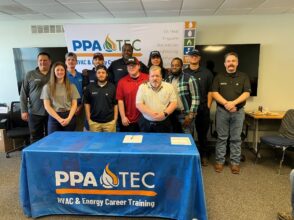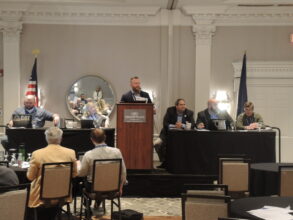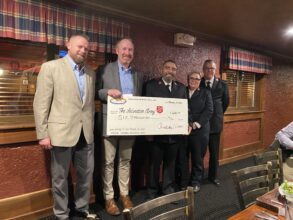Newport Biodiesel Expands
As biodiesel proponents continue working to build a bigger market for the fuel, Newport Biodiesel has expanded its production capabilities, adding storage and investing in a methane recovery system to make its plant more efficient, says Robert Morton, a founder, chairman of the board, and one of 25 shareholders in the company in Newport, R.I.
Established in 2007, Newport Biodiesel collects used vegetable oil from 3,200 restaurants. Its annual production volume, 100,000 gallons in the early going, today exceeds five million gallons, Morton says.
Recent capital investments are designed to stabilize and grow production so that the company can crank out seven to ten million gallons a year by 2020. “We just put in two big storage tanks and a methanol recovery system,” Morton says. The capacity of each of the new storage tanks is 30,000 gallons. The methanol recovery system is critical. “It makes our plant much more efficient, and we don’t have to buy as much methanol,” Morton says. “When you make biodiesel, you take used cooking oil and you mix it with methanol. The methanol is the single biggest expense that we have in the process. By being able to recover it we can reuse it and we can cut down the amount of methanol that we have to buy.”
Newport Biodiesel is active in promoting biodiesel as well. Morton serves on the marketing committee of the National Biodiesel Board (NBB), the U.S. trade association representing the biodiesel and renewable diesel industries, including producers, feedstock suppliers and fuel distributors. A former oceanographer, Morton is involved with an organization that operates SSV (Sailing School Vessel) Oliver Hazard Perry, a 200-foot ocean-going full-rigged ship that was completed this year and set off on a voyage from New England to Florida and Cuba. Before departure, the ship took on 6,000 gallons of B20 at Newport Shipyard. Fuel marketer T.H. Malloy & Sons, Cumberland, R.I., delivered the B20, produced by Newport Biodiesel, to the ship.
The marine market should be a promising one for biodiesel. “But it’s a little bit difficult because of the experience the marine market had with ethanol,” Morton says, “which was really pretty bad.” Efforts to explain how biodiesel is different from ethanol sometimes founder on the concerns potential marine users have, based on their experience with ethanol, he says. An additional challenge to wider use of biodiesel in the marine market is limited distribution.
“What we find is there are people who say they want to use biodiesel, but they can’t find a place to get it,” Morton says. On the other hand, he says, “The marinas would have to dedicate a tank to biodiesel and they’re not sure there are enough customers for it. So, it’s a chicken-and-egg situation here trying to get it started. The Oliver Hazard Perry is a good way to show that biodiesel can work.”
Ferries and fishing boats are promising potential users, Morton says. “We’re working to get some ferries to use it, and some fishing boats, and try to build it up over time.” All the ferries in the Seattle market use biodiesel, Morton says.
New York City is weighing the use of biodiesel for its ferries, including the Staten Island Ferry, Morton says.
T.H. Malloy & Sons, the fuel marketer in Rhode Island that delivered the biodiesel to the ship, is a longtime marketer and promoter of the fuel, pre-dating the establishment of Newport Biodiesel, and has worked with Newport Biodiesel all along, Morton says. “They’ve been our partners from day one.”
Biofuel blended with low-sulfur heating oil, promoted as Bioheat, “could be the real way that the heating oil industry survives,” Morton says. “The challenge is logistics—how [marketers] get the biodiesel into their tanks. It’s a real logistics issue to get biodiesel out to the small distributors. That’s one of the things that we’re working on—how to do that better.”
Promotion of B20 rests in large part on research by the National Oilheat Research Alliance showing that B20 burns more cleanly—with less greenhouse gas and particulate emissions—than natural gas, Morton points out.
“Biodiesel does depend on government support and the big issues now are what EPA is doing with the RVOs [required volume obligations under the Renewable Fuel Standard], whether or not there’s a tax credit and how to deal with Argentinian biodiesel,” Morton says. Blenders had received a tax credit, which expired. Producers are lobbying for a tax credit for producers. (For more on biodiesel shipments from Argentina, and how they affect the U.S. biodiesel market, see sidebar.)
“All these are things are issues to get past and then we can work on infrastructure and make it more available to the typical distributor,” Morton says.—Stephen Bennett
Pictured on Home Page: Robert Morton, founder and chairman of Newport Biodiesel, with T.H. Malloy & Sons driver Kyle Rodrigues.
Pictured above: The SSV Oliver Hazard Perry
Photos by Onne van der Wal
Stephen Bennett is the editor of Fuel Oil News.




